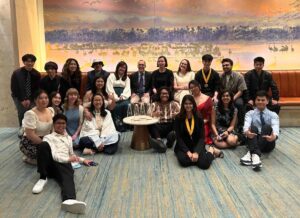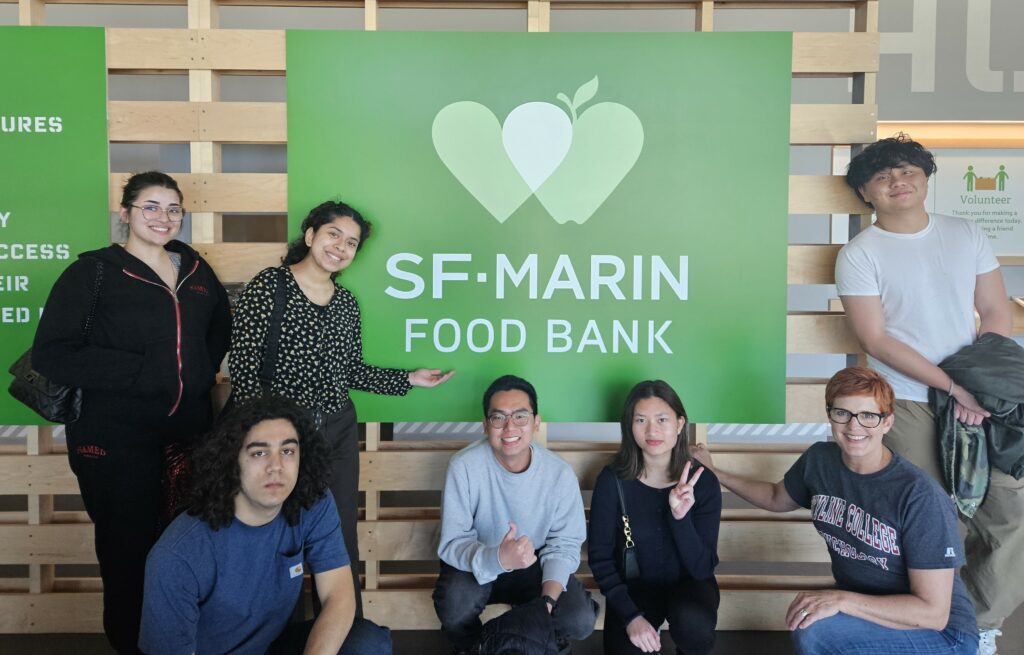Skyline College President, Dr. Regina Stanback Stroud was recently featured in Forbes magazine’s Civic Nation column as a guest contributor. The article, in full, is below:
The Skyline College Promise Is Helping More Students Complete Their Education. Here’s How.
At Skyline College, we understand and fundamentally believe completing college is the most significant step people can take to improve their life circumstances. We know that the basics of higher education can pose big challenges—paying for college, choosing a major, sequencing courses into a successful pathway—these are all barriers that can throw students off. The truth is, fewer than half of the students who start college with the intention to complete their education ever finish.
That’s an unacceptable reality. The Skyline College Promise is our commitment to directly address that reality and deliver an education experience designed for students to finish college.
To do that, we are redesigning our processes, programs, and services, so applying will be streamlined, students will get proactive academic and social support as they progress through college, and the path to completion will be clear and efficient. Our Promise means more people will be able to pursue education as a means to personal agency, enfranchisement, and prosperity for themselves, their families, and their communities.
And we are making this commitment to ALL students.
We began this work in the same way we advise students to begin: by doing research. Skyline College found inspiration in the incredible work being done at the City University of New York (CUNY) through their Accelerated Study in Associate Programs, the ASAP program. That work, launched 10 years ago and designed to streamline student pathways to success, has doubled graduation rates for students enrolled in the program.
Those results speak clearly—something is working. Luckily, the innovators at CUNY recognize that great ideas shouldn’t live in silos. We studied their model, traveled to New York, and partnered with a CUNY team to understand their vision and were chosen to replicate the proven model. Thanks to their transparency, Skyline College didn’t need to reinvent the wheel; we were able to begin the work of repurposing it to fit the needs of our own institution with the support of a grant from the Arnold Foundation.
For us, that means a comprehensive redesign of our college—creating signature approaches that actively remove student barriers to success through intentional and impactful design. It’s a three-pronged approach that looks like this:
1) The Promise Scholars Program
The Promise Scholars Program is designed to eliminate barriers that often keep first-year students from the strong start associated with completing college. Students’ college fees are covered, they have access to laptops, a lending library, and an intensive summer bridge program, and they receive dedicated counseling support throughout the year.
We’re already seeing results in students like Naomi Quizon who acknowledged that the question of how she was going to pay for college weighed heavily on her during high school.
“With the Scholars Program,” says Naomi, “we can go to class, study, meet new friends, find faculty mentors, and do all this without having to worry about how we are going to pay that first year of fees.”
In its first year, the program served 140 students who demonstrated an 86.3% persistence rate, significantly higher than the 62.4% persistence rate of the comparison group.
2) Contemporary Teaching
Students who love their classes stay in school, and teachers co-create the attraction. So we’re integrating equity-centered teaching strategies—relevant teaching built on best practices and critical consciousness—to make classes more engaging and effective.
New training for faculty and staff infuses our approach to pedagogy with cultural fluency and digital savvy. And our comprehensive diversity framework applies an equity lens to our teaching practices, strengthening connections across the diverse Skyline College student population.
3) Guided Pathways
Guided pathways support students in declaring a major, encouraging them to connect their studies to careers, and providing simple and clear requirements to finish their education. Guided pathways solve a common community college problem: too many programs with unclear completion tracks that inevitably lead to students taking more time, spending more money, and taking more classes than necessary.
By organizing education and career options within broad fields called meta-majors, we can make it easier for students to explore directions based on their interests and abilities. By mapping the way through programs, we optimize time and money so students can finish college.
Our actions create transformational opportunities that we’re seizing upon to make impactful changes to our college and eliminate barriers to success. This challenging and ongoing work is about intentionality and accountability, and at its heart, it constitutes the very root of our mission to put students first.
Get started building a College Promise program in your community at collegepromise.org/start.
Article by Dr. Regina Stanback Stroud






